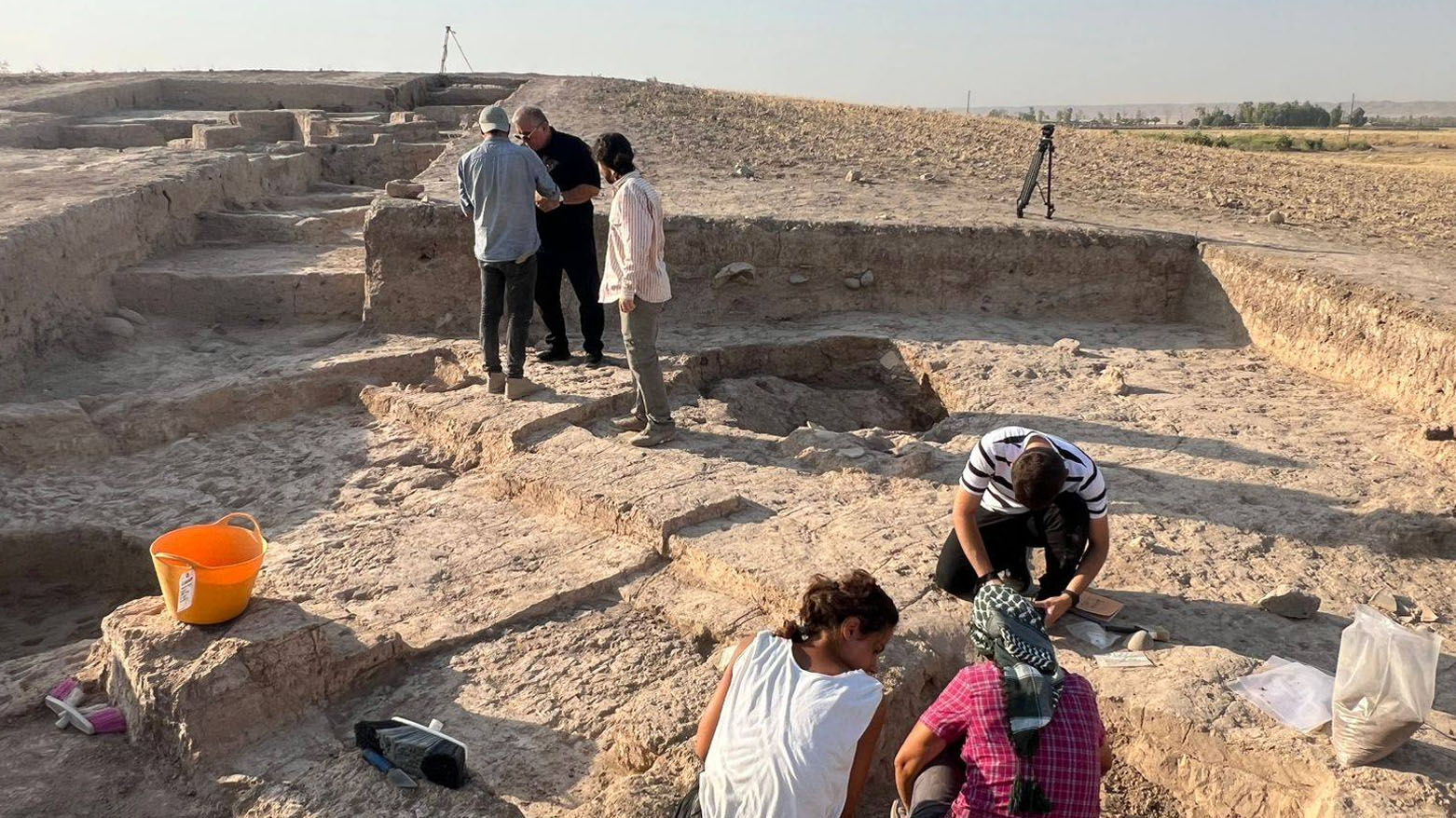Excavations Conclude at Ancient Sites in Southwestern Erbil
“One of the sites in the village of Yadi Qzlar, dating back to 3,000 BC, was a large city. It was excavated and studied by the Universities of Central Florida and Johns Hopkins in coordination with our department,” Babakr said.

ERBIL (Kurdistan24) – Excavations at an ancient archaeological site in the Shamamk sub-district of southwestern Erbil province have been completed, with another site expected to be finalized in the coming days, according to the Erbil Directorate of Antiquities.
Nader Babakr, Director of Antiquities of Erbil, told Kurdistan 24 on Sunday that two significant archaeological sites in the area—dating back thousands of years—are the focus of ongoing research.
“One of the sites in the village of Yadi Qzlar, dating back to 3,000 BC, was a large city. It was excavated and studied by the Universities of Central Florida and Johns Hopkins in coordination with our department,” Babakr said.
The second site, known as Gird-i Matrab, dates back over 3,000 years. Excavations there are expected to conclude in the coming days. Babakr noted that the site was initially excavated in 2013 by Bryn Mawr College in cooperation with local teams.
Both sites span an area of 37 acres and are officially registered as archaeological locations. Researchers have unearthed a number of unique pots and artifacts, shedding light on the region’s rich ancient history.
According to the Erbil General Directorate of Antiquities, there are currently 1,200 registered archaeological sites across the province.
